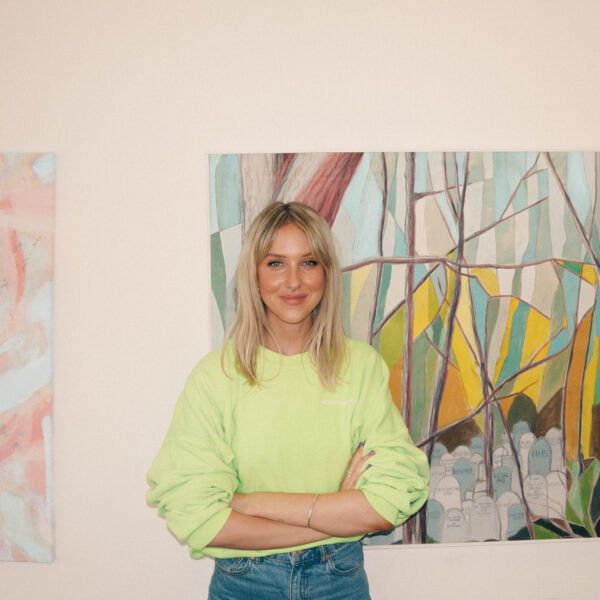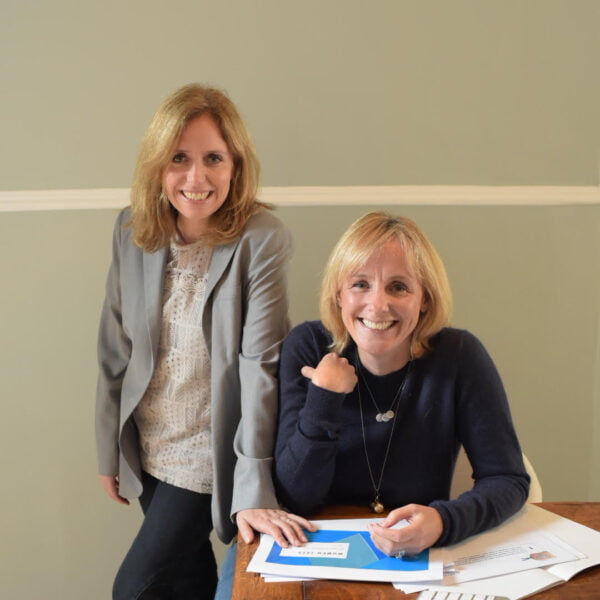
Natasha Collie
Senior Brand Marketing Manager at Penguin Random House UK
At the start of the year, Ladybird Books approached Sonder & Tell with a dream brief. In 2021, a year that’s been particularly challenging for...
In conversation with
Founder Of Simple Politics

Talking about serious issues doesn’t mean defaulting into a serious tone of voice, or using complicated language. If anything, accessibility, clarity and a touch of relatability only maks things easier on the reader.
If you’ve eschewed meticulously scrolling news apps over the past year, you might have come across Simple Politics, an Instagram account dedicated to condensing news stories into accurate, accessible and digestible posts. As founder Tatton Spiller – an appropriately journalistic name – explains, “we can’t control the news and we can’t control people’s reactions to it. What we can do is be as simple as possible to give people the clearest picture possible.” Clarity yes, but what also resonates is SP’s playful tone of voice (hands up if you felt seen by their post asking 30-year-olds to “step back from Etsy for a minute” to book a vaccine).
We caught up with Tatton to talk breaking down politics, and why Instagram felt like the most natural place to share news.
It didn’t exist! I was really frustrated when an Education Bill went through Parliament. I was a teacher and I just couldn’t get my head round it. I hit Google to find out a bit more, but nobody was explaining it. It struck me as really odd: how can these huge changes be made when nobody is there helping people understand what’s happening?
With my experience of 10 years teaching, three years working at Parliament’s Education Service (teaching young people on school trips about Parliament, and a very brief stint as a journalist) I felt I was in a good position to step up and do something about it.
It’s normally pretty clear as to what the big stories of the day are.
Diane and I might have a chat over Slack (we’ve worked together for 19 months or so and only met in person once) and discuss the day. We frequently start by saying how quiet it is, then have a nose around and find we’ve got too much.
When trying to work out if a story crosses the threshold into being useful enough, we use what I call the ‘Mum Test’. Is this story interesting enough for someone to put down their phone and tell their mum about it? If so, it’s in; if not, maybe let’s not clutter up people’s social feeds.
“We see a story and work out what’s really going on. I generally write everything down that might be useful and interesting, and then cut and cut and cut until it fits nicely and has a clear takeaway value for the audience.”
When SP started, it was a website that could be used to track bills going through Parliament. It didn’t go brilliantly as nobody came to the site. I rapidly reasoned I needed to be where people already were – which is hanging out on social media.
I didn’t start on Instagram at first, focusing on Facebook and Twitter. In fact, my colleague at the time, Hattie, asked me a few times to open up on Instagram and I said I didn’t want to focus on another platform. Turns out that she was very right and I was very wrong.
Instagram works for SP partly because of the lack of competition. Facebook and Twitter are full of political pages, but the photo first element of Instagram meant that there were very few text based pages at that point. There are more now. I think it would be much harder to set up now.
My audience on there is almost entirely 18-34 year old women. We are normally the only political or news page they follow. It’s a way of very casually keeping up with what’s going on. We’re not aggressive or pushy in any way, so that suits the audience’s desire just to have a bit of information as they scroll through.
There is a lighter and possibly more playful feel on Instagram than Facebook or Twitter. That matches our tone and ambitions for discussing politics.
The SP tone isn’t something that’s been workshopped. It’s just my tone. I am not intelligent enough to create something else. Certainly not to create and then sustain it. This is just the way my mind works.
That does make it harder for my team, because I can be quite fussy about getting the tone right. It’s immediately clear to me when it isn’t spot on.
That said, sometimes my tone isn’t quite right. The Daily Briefings during the pandemic, for example, needed something different. They were grim and they were serious. Diane stepped up and covered pretty much every single one – and we received a lot of love for them.
SPUS is a tricky one. It was much, much harder than I expected it to be. The country is so huge and so much is going on all the time. To make matters worse, the major news websites all lead with opinion pieces, not factual news stories. Actually finding the story is hard.
It’s also hard to communicate to a UK audience when nobody knows who any of the key players are, with the exception of this President and the last one.
At the moment, the page is putting out a summary of things that have happened every week, and updates if something big happens. We haven’t done an update in a few weeks.
There is also a tonal difference because I don’t know enough about US politics, so can’t quite put my stamp on it. My colleague Charlotte does the SPUS stuff, and it reflects her more than me, I think.
“Any form of communication is about trying to get something from one person’s head into another person’s head. I need to read the story, understand it, and then share that understanding with the SP audience in the most clear and honest way I can.”
We have built a reasonable audience over six years, but the reality is that it’s hugely inflated by the virus. We started 2020 on a few over 100,000 followers on Instagram. I was pleased to have reached six figures.
Over the pandemic we’ve grown to over 600,000 on that platform alone. Over 900,000 across the three platforms. That’s a reflection of people’s desire not just for information, but for information that isn’t focused on the dramatic and the scary, but in a clear, calm and light manner. We hear every day from people who have found they could no longer watch the news, but SP allowed them to keep up.
The next challenge will be maintaining an audience in a post pandemic world.
As for target audience, I’ve never had one. The business model (and I’m aware it’s a terrible business model) has always been to keep doing good things and opportunities and audiences will come to SP. That’s generally gone well for us.
For example, I would never have targeted personal trainers and the fitness community. I have now, though, built up quite a few gym committed followers. Instagram sends you down rabbit holes. One relatively high profile PT shares something, all their PT followers share it, their clients and whoever else then pick it up. All of a sudden you’re big in the spandex world.

Honesty and clarity. We can’t control the news and we can’t control people’s reactions to it. What we can do is be as simple as possible to give people the clearest picture possible.
Any form of communication is about trying to get something from one person’s head into another person’s head. I need to read the story, understand it, and then share that understanding with the SP audience in the most clear and honest way I can.

Senior Brand Marketing Manager at Penguin Random House UK
At the start of the year, Ladybird Books approached Sonder & Tell with a dream brief. In 2021, a year that’s been particularly challenging for...

Brand & Community Manager at Homethings
Creating a tone of voice from scratch can be challenging. But a blank slate to work from also mean there’s room for something a bit...

Authors & Co-Founders of PLH Research
The rise of ‘femvertising’ has meant a flashy show of female solidarity from brands, but not always an integrated marketing strategy that really speaks to...

Brand & Community Manager at Homethings

Senior Brand Marketing Manager at Penguin Random House UK